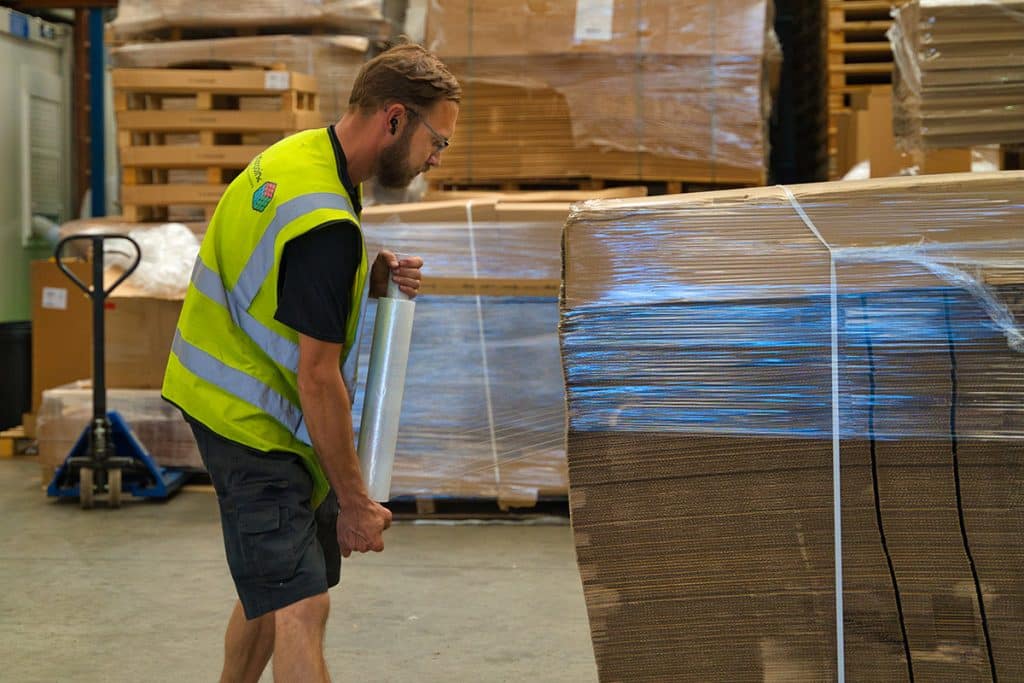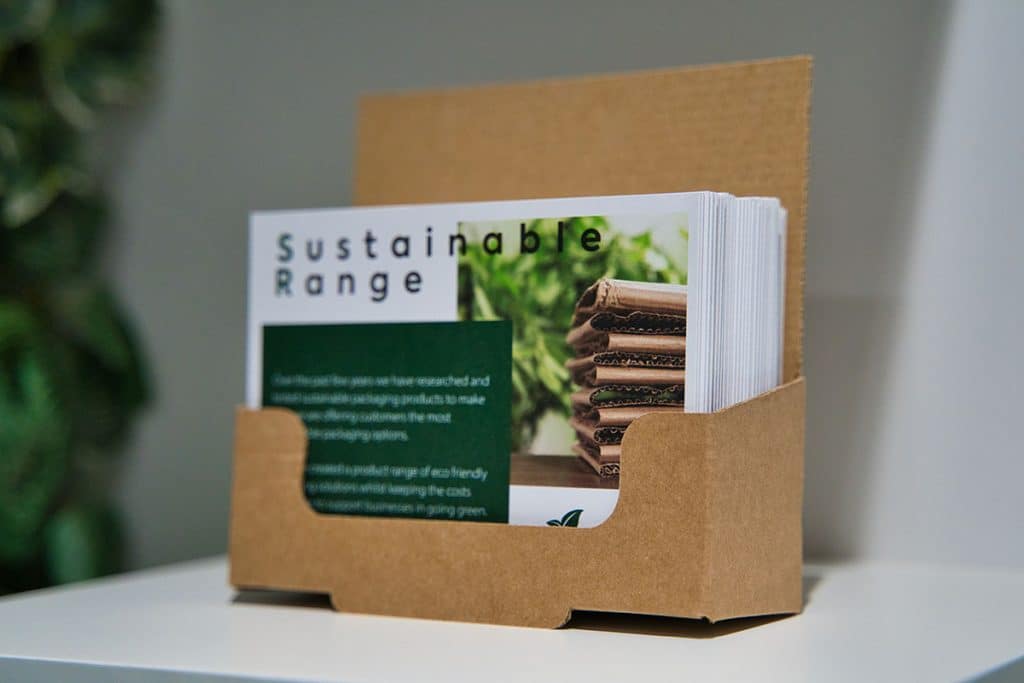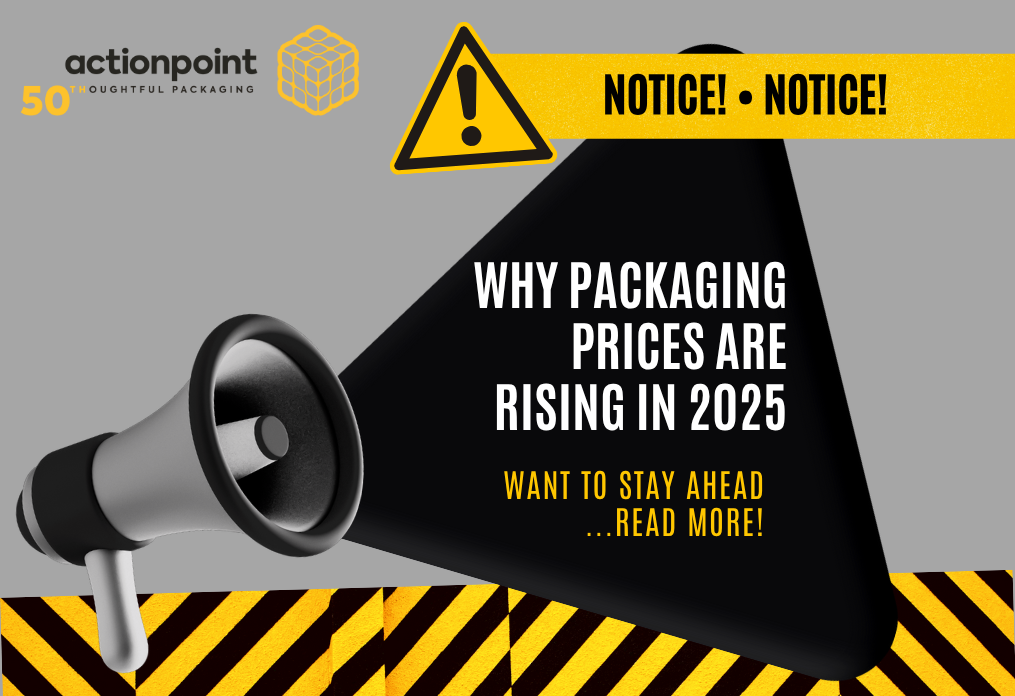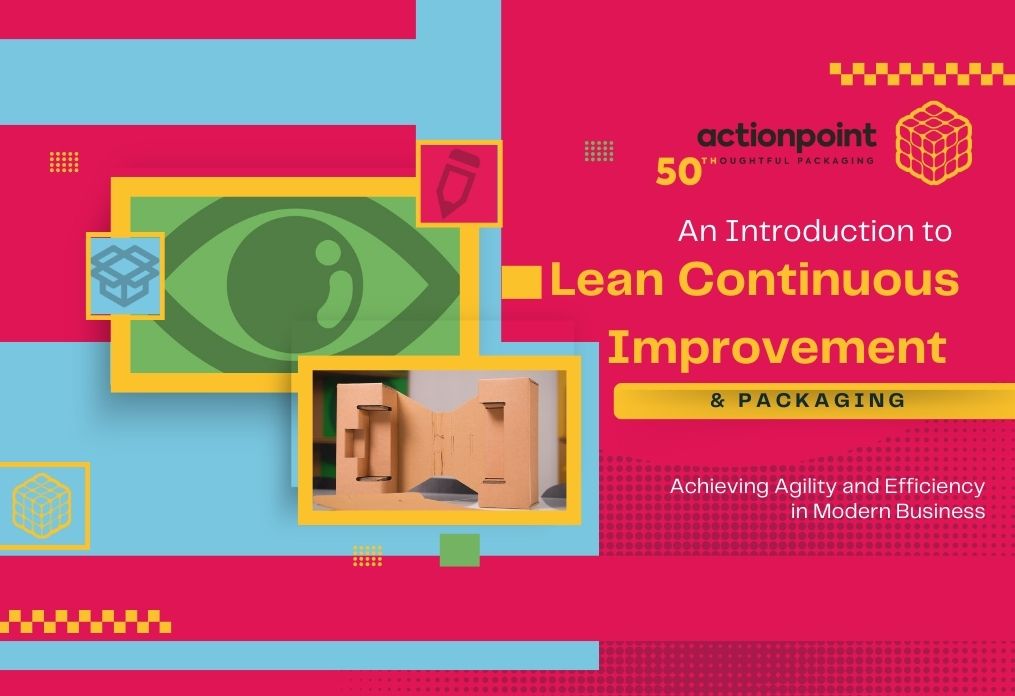So, you need to buy some packaging for your goods. Maybe your business is just starting out, or you’ve got a new product coming up, or you’re thinking of changing supplier and want to see what your options are. What do you do next?
Essentially, there are 2 main routes: you can go direct to the individual manufacturers for each item you need, or you can work with a bespoke packaging merchant that creates a complete, personalised solution.
But how do you know which option is best for you?
Here at Actionpoint, we have been supplying SMEs (small and medium-sized enterprises) with custom packaging since 1975; and we work closely with a network of manufacturers representing every area of packaging expertise.
We’ve learned an awful lot in that time and if there’s one thing we like to do, it’s to share our knowledge. So here you go: decades of packaging experience condensed into this article, outlining the pros and cons of choosing a bespoke packaging merchant or a manufacturer.

Price
Bespoke Packaging Merchant:
- Is the intermediary working on your behalf to get the best packaging solution for your goods.
- Doesn’t ask you for a minimum value for your packaging order.
- Is assumed to be more expensive because involving a third party means paying an additional fee. But in fact, it can sometimes save you money. A merchant brings a lot of business to packaging manufacturers (because it is working on behalf of so many customers), and this puts it in a strong position to negotiate on price.
- Is in regular contact with the manufacturers and has established good working relationships, further strengthening customers’ purchasing power. The packaging merchant has the clout to help all its customers get a good deal, not just those buying the biggest amounts of packaging.
- Can advise on the design of a bespoke packaging solution that makes savings elsewhere, such as improving packing, palletising, delivery, and storage efficiencies, while reducing damages and returns.
- Has a network of suppliers to choose from, so can cherry-pick from trusted manufacturers and make the most economical choice every time you place an order. For instance, if you wanted small, medium, and large boxes, a manufacturer would say it could do all three types, but this may not be the most cost-effective approach. It would likely have to use 3 separate production lines (each suited to a different size of box). Whereas a packaging merchant knows which manufacturer(s) could complete each part of your order with the best efficiencies.
- Protects you from being stuck in limbo if one manufacturer is charging too much, doesn’t have the necessary equipment to make your design, has raw material or staff shortages, or is too busy to take on your work.
Manufacturer:
- Makes a specific packaging product (or products) on site and sells direct to customers such as yourself.
- Requires a minimum order value for your packaging.
- Is assumed to be the cheapest option, but this is not always the case – in particular with bespoke packaging. Initial setup of machinery and tooling is expensive (and even more so for complicated designs), but economies of scale mean the price reduces for larger volumes of packaging. So, it’s a good option if you are placing big orders for packaging, but costly for medium to smaller-sized businesses.
Raw Materials
Bespoke Packaging Merchant:
- Can cast a wide net to find the supplier with the necessary raw materials to complete your packaging order. This is useful during the kind of packaging shortages experienced in 2021-2022 with unprecedented increases in demand for limited supplies of cardboard, paper, and pulp.
- Can source any material to create a highly tailored packaging solution at a competitive price. This ranges from any board grade you could need to innovations in sustainable packaging – such as paper-based alternatives, high performance film, and plastic packaging with a minimum 30% recycled content (making it exempt from the Plastic Packaging Tax).
Manufacturer:
- Larger manufacturers have a good chance of getting raw materials in times of scarcity, but it is likely that their biggest customers with the largest packaging budget would be the first ones to benefit from this.
- Is very strong on its particular area of expertise but can only really help you with that one element of your packaging.
- Limits your choice of materials for your packaging solution. For example, a box manufacturer would only present you with the range of board specifications it works with, and so may not have the best spec available for your needs.
Lead Times
Bespoke Packaging Merchant:
- Can use purchasing power to negotiate preferential, shorter, lead times as well as lower prices with manufacturers – or find an alternative supplier with a better offer.
- Provides stockholding service so you can order higher volumes of packaging at a time and benefit from a better deal in price. Call off the stock as and when you need it, even if it’s for next day delivery. This makes it easier for you to manage and anticipate your packaging needs, with increased flexibility if you get a sudden upswing in business.

Manufacturer:
- Has little room for negotiation unless you’re making a large order. More time-consuming to shop around other manufacturers without an understanding of what they do, how they work, and which is more likely to be able to help you.
- Unlikely to offer a stockholding service, so you would have to order a month’s worth of packaging at a time – making it more important to accurately predict your packaging requirements – or order bigger quantities of packaging but set aside space to store it on your own premises.
Service
Bespoke Packaging Merchant:
- Simplifies the buying process with one point of contact that gets to know your business, sees the big picture, and takes care of every aspect of your packaging.
- Offers a personalised service to support your needs. Identifies potential problems, suggests improvements, and monitors and anticipates usage.
- Can provide samples of prototype packaging (including samples with print branding on them), and even create your print branding artwork for you.
- Liaises and negotiates with the manufacturers on your behalf, changing suppliers when it means you get a better deal. However, this does mean that you might not know exactly which manufacturer has been selected to create your packaging at any given time.

Manufacturer:
- Can build good relationship with your business, which is helpful if you plan to stay with that one manufacturer for a long time.
- Can give real-time pricing and timings direct from the source rather than waiting for an intermediary to relay this information back to you.
- Provides clarity in terms of you know exactly which manufacturers you’re buying from, and you have a direct line to each of them.
- Has ultimate control over its production schedule if you need something urgently.
- More likely to expect you to tell them what you need, rather than guiding you towards your ideal packaging solution. Meaning there’s a risk you might not get the best packaging for your goods.
- Unlikely to have the resources to advise on or create your print branding artwork.
- Can be confusing and inefficient when juggling multiple contacts for multiple aspects of your packaging. Even with excellent customer service at each supplier, this can be time-consuming and difficult to sustain, especially when problems arise in one or more areas of your packaging production and supply.
Sustainability
Bespoke Packaging Merchant:
- Can recommend and source the most sustainably produced materials to suit your packaging needs, taking into account raw materials, manufacturing processes, logistics, and recyclability/disposal.
- Can advise on sustainable packaging design. Factors could include using fewer or lighter materials, reducing box size so that more products can be delivered in one journey, adding cardboard fitments instead of voidfill, and introducing alternative vegan-friendly glues and inks.
- Does add an extra journey for your packaging as it is made at the manufacturer, delivered to the packaging merchant, then (whether immediately or via stockholding) delivered to you.

Manufacturer:
- Will be able to advise you in detail on the sustainability of its practices, materials, and products. But you are limited to purchasing only the materials and products available at that particular manufacturer.
- Reduced carbon footprint for the delivery of your packaging as it goes from the manufacturer direct to the customer (you).
Industry Knowledge
Bespoke Packaging Merchant:
- Takes a holistic view of your packaging and of the packaging industry so has excellent all-round knowledge and expertise. Regular contact with manufacturers across the board means early detection of market trends and supply chain problems. This offers a certain degree of protection from external events, or at least advance warning to avoid or mitigate issues likely to affect your packaging.
Manufacturer:
- Has in-depth information and news on their part of the supply chain. But not necessarily knowledgeable beyond that.
- Unlikely to keep you up to date on the packaging market. You would probably need to find other sources or conduct your own research to avert or alleviate any nasty surprises – involving time and effort on your part.
Packaging Management
Bespoke Packaging Merchant:
- Offers a more straightforward process: everything that you need all in one place. One company, one set of contact details.
- Understands all your packaging needs and how the elements must work together, so nothing slips through the net. Gets all the answers for you, saving you the time and frustration of chasing information from disparate sources.
- Often operates pre-emptively, getting in touch if your usage changes, your packaging held in stock is running low, or major supply chain changes are on the horizon such as price hikes or material shortages.
- Has tools to help you keep track of all your packaging at a glance such as an online account that can be accessed 24 hours a day, 7 days a week.
- Provides additional quality control to ensure your packaging arrives in top condition. The packaging is checked as it leaves the manufacturer, checked when it arrives at the packaging merchant, and checked again before it is sent to you.
Manufacturer:
- Can become a juggling act. More time-consuming to manage the different elements of your packaging via numerous manufacturers. And more stressful when problems inevitably occur.
- Unlikely to help customers manage their stock levels, the onus is on you to keep track.
So, which is the right option for me?
Only you can answer this question. But we hope that we’ve given you enough insight to help you make up your mind. If you want to order large volumes of straightforward packaging, your packaging needs are unlikely to change anytime soon, and you have the time to manage multiple sources, then you could be a candidate for going direct to manufacturer.
If you want the backing of a packaging partner, with one main contact who will get to know your business, work to get you the best deals, and advise and guide you as much or as little as you want, then you could benefit from a bespoke packaging merchant.
But, ultimately, it’s down to your personal preference.
No matter which route you choose, you might find it helpful to read our Bespoke Packaging Checklist post to help you understand and keep track of all the factors involved when buying bespoke packaging.
And if you would like some advice on custom packaging for your business, or to book an in-depth bespoke packaging appointment at our Packaging Creation Lounge, contact Actionpoint Packaging.




